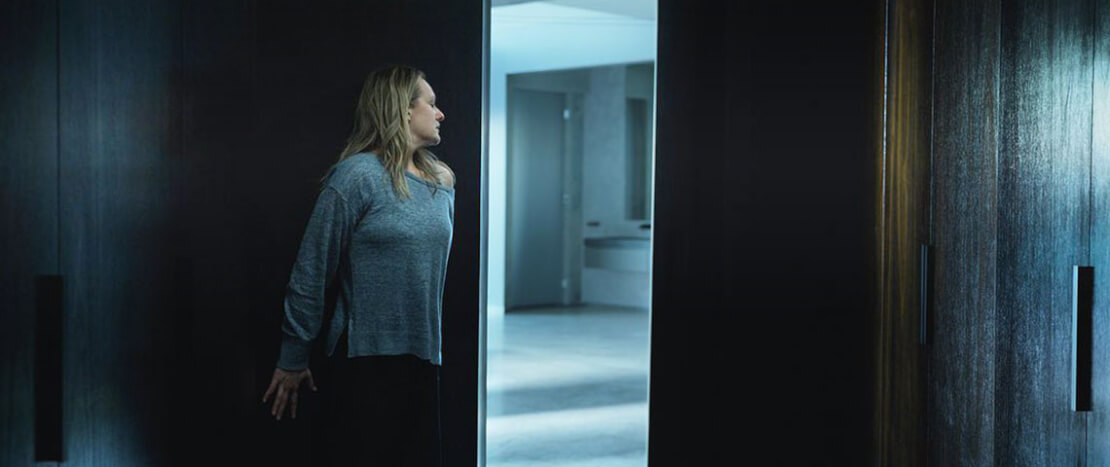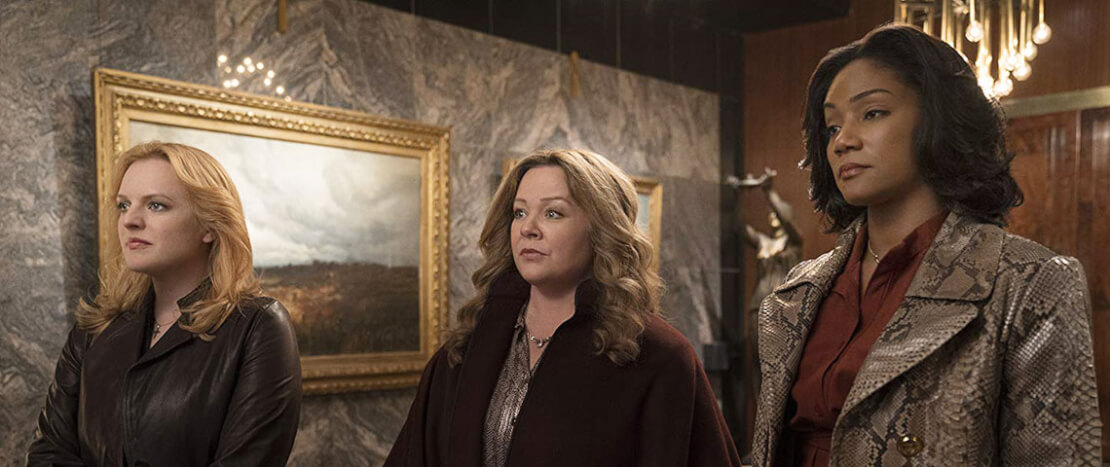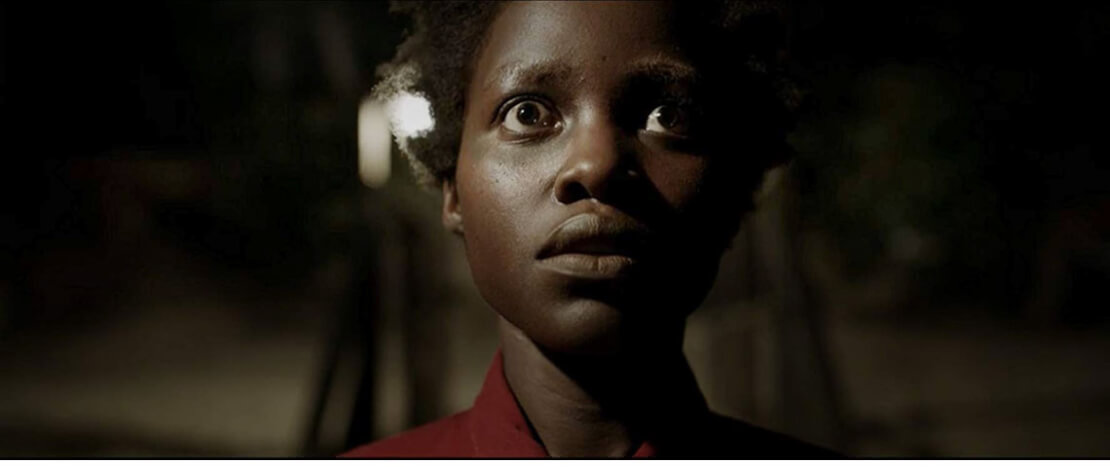The Invisible Man
Waking in the dead of night, Cecilia Kass (Elisabeth Moss) runs away from her abusive partner, the wealthy and brilliant optical scientist Adrian Griffin (Oliver Jackson-Cohen). Spirited away by her sister Alice (Harriet Dyer) and now living with Alice’s policeman friend James (Aldis Hodge), Cecilia would seem to be free of Adrian’s controlling influences – but will she be?
… is a film that is crying out for an equally talented nemesis.
With no discernible link to either director Paul Verhoeven’s 2000 ‘Hollow Man‘ or Chevy Chase’s 1992 comedic take in ‘Memoirs of an Invisible Man‘, ‘Insidious: Chapter 3‘ director Leigh Whannell takes H.G.Well’s ground-breaking premise in an altogether more psychologically-frightening trajectory. Framing the titular character as the controlling sociopath, we see his invisible world through the ‘paranoid delusions’ of his quarry Cecilia, played by the ever-excellent Elisabeth Moss.
By innovatively framing each scene in a series of wide-angle shots, ‘The Invisible Man’ invites the audience to see if they can identify the visual clues as to a presence that can’t be seen. In doing this the film plays towards its strongest asset, Elisabeth Moss herself. Well adept at doing wigged-out characters, her manic protestations to those around her and a loud, ratcheting score both do the real dramatic, heavy lifting. Where in previous remakes, the special effects arrived far sooner, Leigh Whannell wisely decides to hold the telling reveal of his monster until the third act.
Set inside largely minimalist locations, there is little room for Cecilia to hide as it becomes increasingly transparent that her ex is determined to disassemble her life piece by piece. Friendships are abused, trusts are broken, all of which engagingly fatten out the middle portion of what looks like a spirited step away from ‘The Invisible Man’s’ previous interpretations. However, when the psychological torture has been felt to run its course, production company Blumhouse’s penchant for dragging bodies across the floor then comes to the fore. Thrown around like a screaming ragdoll, Cecilia’s attacks become reminiscent of 1982’s ‘The Entity‘ and the sound design starts paying direct homage that other invisible assassin, the ‘Predator‘ as this ‘Invisible Man’s inventiveness shrinks from view.
With a final stand-off and a plot-switch that was telegraphed from its earliest scene, the real budgetary sacrifice here seems to be in the casting. Whilst Aldis Hodge and Storm Reid are both fine and Harriet Dyer makes for a convincing sister to Elisabeth Moss, the final unveiling of the invisible man as Oliver Jackson-Cohen is the curtain-call that should have been dropped. Very easy on the eye, but stiff when it comes to imparting either menace or faux concern, far stronger casting choices such as Ben Mendelsohn and Oscar Isaacs in ‘Ex-Machina‘ mode scream to the fore.
With a burning talent such as Elisabeth Moss, as recently evidenced in her dangerously eclipsing-turn as a zombie in Jordan Peel’s ‘Us‘, this “Invisible man’ is a film that is crying out for an equally talented nemesis. Sadly unable to sell the lie that Adrian too is a victim, the acting chasm widens to a point where it consumes the work laid beforehand.
Trailing off into the nether world of what-might-be’s and franchise-securing sequels, Elisabeth Moss does everything but wink upon her exit. She knows she’s better than this and so will you, but for half a movie that had genuine potential, you still might be able to see through this ‘Invisible Man’s’ short-comings.













